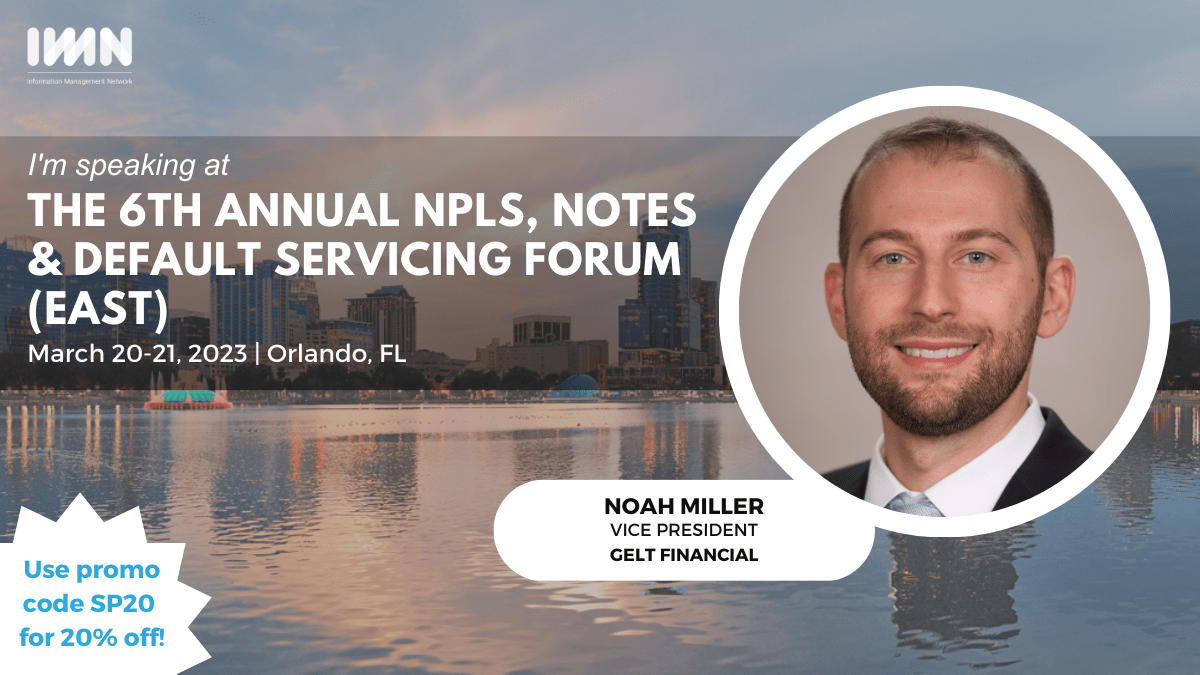Questions from a Mortgage Broker on closing a commercial mortgage quickly. How to best prepare for a fast closing.
“Jack: Okay, Marcy Berger, we’re recording. First, like our YouTube channel and leave comments. You know, yesterday I got an email from a new broker. He actually said—I’m looking at the email now, and it’s a little bit—we’re not as sharp as we—I don’t want to say we’re not as on point as we should because I’m reading an email, but basically this guy says he enjoys our videos, and he had some questions. He said he’s been in the residential business for 6 years, and he just got into commercial. He had some questions, and I guess these are questions that we share the same frustrations with all the time. So, his question; number one is we should discuss title work and appraisals for commercial real estate and how they hold up a closing and what a broker can do if anything. Then he says when a hard money lender says 2 to 3 weeks of closing, when does the clock start? Coincidentally, we’re making this, and I’m guessing we have 4 or 5 deals in the pipeline that are ready to close except the title. So, his email came—and this is all the time, so his email came at a perfect time. So, what’s the recommendation?
Marcy: I’m gonna—I work directly with this because I closed the loan. So, what I would want to tell brokers is be very selective about what title agent—we let our borrowers, brokers choose the title agent that will close the loan. So, I will recommend that you do a lot of research on the title agent because if there’s a bad title agent, it messes up the whole deal. And what happened like on one of my loans is I had to switch title agents. So, you know, read about them, make sure that they know how to do commercials.
Jack: Get referrals.
Marcy: Yeah, they have good reviews— (Jack asks a question)
Jack: A lot of times, it seems to me that the borrowers are ordering the title reports after we issue a term sheet. So we don’t get the title report for a week, 10 days. Some of these counties are taking— What do you think about if they know they want to refi or purchase it, order it upfront?
Marcy: You could. I mean, that way, you know what you’re dealing with.
Jack: That’s to deal with the problem if there’s a problem upfront.
Marcy: Because, for example, on one of my deals right now, we got a title back, and the borrower didn’t know that all these previous UCCs and loans, judgments, liens, they’re not released off the title. So now my borrower has to go back to these companies and gather all these releases and UCC releases, and it takes time. But if you know you’re refinancing, go ahead and order the title, and that way you know what you’re dealing with. You have somewhat of a clean title before you even get to a lender. That could be another way of looking at it too.
Jack: So just to put it in the framework for all the mortgage brokers and borrowers listening, if you bring Gelt a deal, and you have a full title, and we don’t really do appraisals, so we can literally close the deal in 2, 3, 4 days. What takes the longest amount of time is the title, almost consistently, almost consistently.
Marcy: And then one more thing, you know, I want to say about that. So also, another thing with the title agent, when you are definitely, mostly, we do our refinances, and especially if there’s a balloon, and you definitely know that you’re going to be paying something off before you even start reaching out, try to start reaching out for all these payoffs. Because I have another deal that the title agent did not start working on the payoffs until a couple of days before we wanted to close. And I’m like, “what do you mean you haven’t gotten the payoffs yet?” Which, again, is not the lender’s job. That’s the title agent’s job to gather the payoffs.
Jack: Or have the borrower do it.
Marcy: Or the borrower. The borrower has to. So, get your payoffs. Like I have one deal that has a tax lien, and those payoffs don’t come so fast. You know, you have to request them, even if you request them 30 days longer than you think. The worst that would come out of the situation is that you overpay them, and then they refund you the money. But you already have a payoff for the title agent because the bottom line is that we, of course, need clear title to be in first position to close your loan.
Jack: A couple other things on that. So, order the title in advance, make sure it’s clear, clean it up. What we also see a lot of problems, and we made other videos on this, is a lot of people who have corporations or LLCs let their good standings or the renewals expire. We have another loan that’s all screwed up. It’s a corporation in New York, and it’s a disaster. Again, we’re ready to close the loan. The guy happens to be in foreclosure. We’re ready to close. But because he didn’t pay his annual corporate registration fee to clean it up, now, instead of something that we could have had closing today, it’s going to take a week or 2 weeks.
Marcy: So that’s another good point. Let’s also just explain to the brokers and to the borrowers. The borrowers will know this because that’s how they set up their business, the difference between an LLC and a corporation. So, let’s talk about that so that people understand. There are different documents that are needed depending on how you have your LLC or corporation set up. So, for example, on a corporation, you have bylaws instead of an operating agreement, you have a members list, and you also have a stock certificate. So, it’s very common that, you know, you issue a stock certificate. And then, like for us, we utilize it. We want to see the stock certificate and hold it as collateral for our loan. So, all those different documents, you should have them together before you even apply for the loan because it just makes everything faster. And then for a LLC, you have an operating agreement. For an LLC, you
have an operating agreement, you have articles, you have proof of EIN, and you have a letter of good standing. So, if you have all your corporate documents or LLC documents all gathered correctly, that also will make it go faster.
Jack: Yeah. So, the bottom line, I think, is be prepared with the title, with your corporate documents. Again, we remember, we’re only paid, we only make money once we—
Marcy: If we close the loan.
Jack: Yeah, we make money through the monthly payments. So, we have literally a whole board of loans that are ready to close, but various things are holding it up that could have been dealt with in advance. The title is a perfect example, and Marcy brought up the corporate documents. That’s always a disaster. People don’t have them together. Get this stuff in advance. So, you know, I want to go, you know, this broker particularly asks, “What do we do to ensure 2 to 3 weeks closing?” You know, I can tell you that we can do it in a couple of days if you bring us a complete package and disclose everything upfront. You know, we often are told a partial story. There was another case where we approved the deal, and no one mentioned anything about a bankruptcy, and then after we approved the deal, a week later, we find out the guy was—
Marcy: It was dismissed, but there was a reason.
Jack: Yeah, so disclose everything up front. If you come to the lender, whether it be Gelt or someone else, with the complete package, the title, the corporate documents, whatever the bad stuff is, get it out of the way first. The deal will close quick. I know with Gelt and other hard money lenders, we’re closing them within days. Well, Gelt is—I don’t know about other—
Marcy: Well, we’re a direct lender. We do everything in-house. I mean, we can get it done, and I take it to closing for you, and you know and handle all the parties involved in the deal. So, you know, it just makes it go smoother if you are—
Jack: Be prepared. Be prepared, and brokers should ask borrowers questions. We find all the time a broker will be so excited to get a deal; they’ll just send it to us, and they don’t know half the story. So, be prepared, and we’ve made so many videos on this. We really have. We said, you know, invest the time up front; it goes so smooth. And when it goes smooth, the closing gets done smooth. So, I think we answered this broker’s questions. It’s really when a hard—
Marcy: And the bottom line is, with the time frame, that was another one of his questions.
Jack: It’s usually from the signed term sheet.
Marcy: It’s from the signed term sheet to the end. If title runs smooth, if we have to order it, I’m saying if you don’t bring the title, we can get it done in 2 to 3 weeks. If it comes in—
Jack: If it comes in without a title, if you bring us a title, it could be days.
Marcy: We can get it done in a couple of days. So, it just depends on how organized your borrower is, and as the broker, you need to organize your borrower.
Jack: And different locations are different. There was one—give you an example. In South Florida, we can get a title in 4 or 5 days, Philadelphia 4 or 5 days. There was one in—what state was it, Virginia?
Marcy: Virginia.
Jack: They said the title company—the first title company, they said they needed 30 to 60 days. We’re ready to close the deal today, but—
Marcy: Yeah. So, in that situation, that title agent was not for us. So, we had to switch.
Jack: She found a new title agent.
Marcy: And I reordered title from someone else because that was not on my time frame.
Jack: Yeah. And with title agents, it’s a very good point. There’s a lot of one-man or two-man bands, and they’re probably very good. I would go with one of the big shops… We’ve seen all kinds—we’ve seen. I don’t want to get too into it, but we’ve seen. We actually had an incident. I don’t know if I told you. Someone forged our name at a title company.
Marcy: I mean, it doesn’t surprise me.
Jack: Yeah, we’ve had all kinds of horror stories with payoffs with little one and two-man shops. I would use a—
Marcy: It’s best to use the national one because you’re gonna get better service and you’re paying the same amount of money.
Jack: Okay. I hope we answered your question. The timing starts from when we get the signed term sheet. Keep posting your questions. We’ll answer them. Remember to like our YouTube channel, leave your comments. If this is a direct—some guy sent me an email, we’re making this for him. Remember “When your bank says no, we say yes” And remember we’re a portfolio lender. You’re always going to speak to a decision maker. We can close quick. We don’t need secondary markets. In fact, everyone else is raising the rates; we’re lowering our rates. We’re doing deals that other people aren’t. So, think of us. We’d love to do your deal. Take care. Have a wonderful day.”
Category: Mortgage Brokers
Tag: closing
























